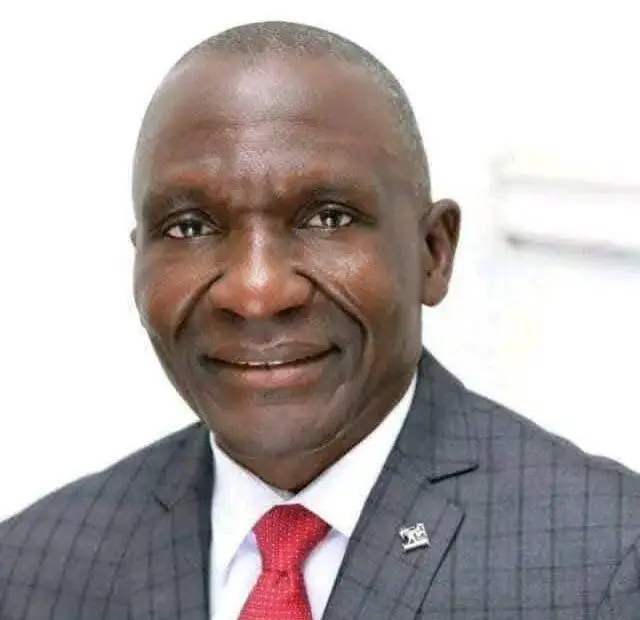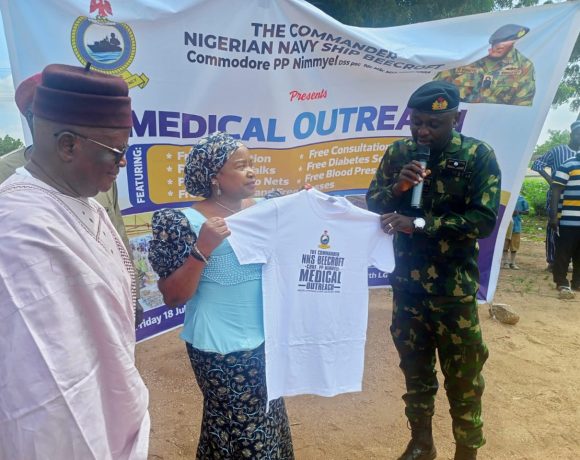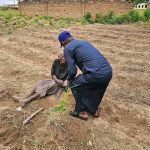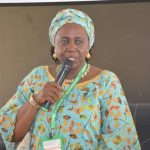Challenges before the Nigeria’s board of North Central Development Commission

Nigeria
The Nigeria’s North Central Development Commission (NCDC) was created to address the infrastructural challenges in the North central region of Nigeria.
Like its forebears, the Niger Delta Development Commission, the North East Development Commission, the South East Development Commission, North West Development Commission, and the South South Development Commission, the NCDC faces daunting tasks in addressing the challenges in a region beset by many years of internecine communal strife, devastating natural disaster and environmental degradation.
Established by the North Central Development Commission (Establishment) Act, 2024, ‘the commission is charged with the responsibility among other things to receive and manage funds from allocation of the Federation Account for the reconstruction and rehabilitation of roads, houses and other infrastructural damages suffered by the region as a result of communal crises a well as tackle ecological problems and any other related environmental or developmental challenges in the North Central States’ of Benue, Plateau, Nasarawa, Kwara, Kogi, Niger and the Federal Capital Territory (FCT).
The establishment of NCDC followed years of agitation from indigenes of the region, who felt that their region had suffered neglect despite years of economic and social disaster
However some analysts see overlapping functions between the NCDC and the HydroPower Producing Areas Development Commission (HYPPADEC)
HYPPADEC, established by an Act of Parliament in 2010, is to address ecological challenges from the operations of Hydroelectric Dams. The establishment of the commission also came as a result of agitations by persons and groups affected by construction and operations of Kainji, Shiroro and Jebba Dams in Nigeria.
The intention was to cushion the ecological, socioeconomic and psychological effect of the dams on the communities that suffered a great deal of imbalances from the projects without commiserate reward to bridge the gap created in their lives.
But analysts see the mandate of NCDC as wider in scope than that of HYPPADEC. While HYPPADEC was set up to specifically address ecological issues arising from the operations of the two dams, it did not however concern with issues arising from humanitarian crises like displacement of communities as a result of wars or communal crises.
However the need to establish such a commission became overriding given the position of The North Central region as the food basket of the Nation and anything that affects that region ultimately would affect the whole country.
The region, apart from its great potential in agriculture, is also rich in solid minerals. It also offers a wide range of sights and experiences; housing the historic confluence town of Lokoja to rich mineral deposits in Plateau to the purest iron ore in Itakpe in Kogi State. The picturesque mountain caves in Jos and Abuja also added beauty to the region.
Despite the overlapping functions between NCDC and HYPPADEC, conceivers of the commission saw the need to set up the north central development commission. And so on February 4, 2025, President Bola Ahmed Tinubu, finally signed the NCDC Bill into law with an astute accountant and career civil servant, Dr. Cyril Tsenyil, former accountant General of Plateau State as the managing director. Tsenyil has been described as a trailblazer, who has left an indelible mark on public finance management in Nigeria and beyond. With a career spanning over two decades, his innovative policies, ICT-driven reforms, and commitment to transparency have redefined financial governance, setting a benchmark for accountability in public service. It’s these qualities that it is hoped he would bring to bear in the management of the commission.
The commission has set an agenda in priority areas: humanitarian, coordination, early recovery, long term development and north central recovery and stability programme.
Be that as it may, the new board is beset with a lot of challenges ahead of it.
In the humanitarian aspect, the commission has daunting tasks in resettling IDPs in Benue, Plateau, Nasarawa. In Benue alone, there are 17 internally displaced persons camps hosting close to 2.1 million persons, including women and children. This does not only represent numbers, but a huge humanitarian crisis that calls for urgent and comprehensive intervention by NCDC.
For over a decade, there had been protracted conflicts, primarily between indigenous farming communities and nomadic herders. These had also led, in its wake, and other security challenges including banditry and terrorism.
Some criminal elements have also taken advantage of the situation to unleash mayhem on Benue communities, particularly in Ukum, Logo, Katsina-Ala, Kwande, Gwer East, Gwer West, Guma, Makurdi, Agatu, Otukpo.
The story is the same in Plateau where for over two decades, there had been internal strife between the indigenous peoples, mostly from agrarian communities and herders. These clashes, over resources, have escalated over the years, leading to widespread insecurity and the mass exodus of communities from their indigenous homes.
Communities in Bassa, Mangu, Riyom, Barkin Ladi, ,Bokkos, and Jos South have continued to witness constant clashes up to date. The resultant humanitarian crisis has stretched the resources of these states far beyond their capacity with many persons living in shelters, which were meant to be temporary, now becoming permanent. As of today, Riyom and Bokos hold a large population of IDPs displaced from their homes.
Katdapba Gobum, a former chairman of the Nigeria Union of Journalists in Plateau state, while welcoming the creation of NCDC said, “The Commission is a welcome development for the good of the Central Zone. There are a number of areas that need the intervention of the commission. These include a number of areas which need to be opened by constructing roads and or patching existing ones which have become death traps. Again, one of the areas that need to be attended to is in primary schools infrastructure. While the state government may have touched some, this sector has been abandoned for long.
“The third, which, to me should holistically be looked into is the mining ponds which have since become death traps mostly in the northern senatorial district. These ponds came about by mining activities in the Jos, Bukuru, Barkin Ladi, Riyom area and should be reclaimed and utilized for farming activities or homes.”
He also wants the commission to collaborate with states and conduct a comprehensive needs assessment to determine the immediate needs of the state. This, he said, would serve as the parameter for early recovery and long-term development.
In the north central, the intervention of NCDC has become more necessary following the recent flooding, which ravaged the Mokwa community, killing more than 200 people and rendering thousands more homeless. The commission also needs to intervene in the flooding arising from the overflow of river dams of Rivers Niger, Benue and the Shiroro Dam.
The commission is also expected to act on ecological problems in the region. In Minna, the commission will face the challenges of reclaiming ponds left by years of illegal mining which had posed a lot of flooding in various communities in the state.
The Man, Dr. Tsenyil Cyril Yiltsen (PhD)
The new managing director of the North Central Development Commission Tsenyil has a career spanning over two decades. He was Accountant General of Plateau State (2015–2023), and he spearheaded groundbreaking reforms that revolutionized revenue generation and fiscal discipline in the ministry of finance.
As a distinguished chartered accountant, who left an indelible mark in the Plateau state civil service, Tsenyil spearheaded groundbreaking reforms that revolutionized revenue generation and fiscal discipline in the state ministry of Finance.
This is attested to by his former boss in the ministry of finance, Nde Isaac Wadak. Speaking on Tsenyil’s appointment, Wadak said, “Honestly, when I heard of his appointment as managing director of the North Central Development Commission, I was elated, because this is somebody that I know very well, having worked out of me as Director of Finance and Supply. When I was appointed as permanent secretary and posted to Minister of Finance, I met a totally disorganized finance department. And in my search for experience, my attention was brought to him. And I asked that he be posted from a place he was in to the headquarters. And when he came, he actually reorganized and revamped the department. And I left him there. And when I retired, and I heard that he was appointed as the accountant general, I knew that I didn’t make a mistake at all.
“So I want to believe that he will bring to bear this experience and exposure to the new appointment he has gotten now as the managing director of the board of NCDC.
Wadak, who addressed criticism regarding his appointment, described such criticisms as highly misplaced.
He said, “What are really the issues they are criticizing about? You see, that’s the whole thing. You see people who just criticize for criticizing sake. For me, I don’t feel that all those criticisms were out of place. Because if you’re saying the man is not competent, why don’t you say what makes you think he’s not competent?
“To me, all those people who came out and criticized the appointment are doing so for the sake of criticism. I think they ‘re just sponsored. Let me try to just go through some of the reasons because I think I read that article there. They said the appointment is politically influenced and does not reflect the collective interests of Plateau people. So, I don’t know what they mean by political influence and the reflection of the collective interest of Plateau people. Are they speaking for Plateau people or speaking for themselves? And then another criticism is that the nomination was through Lalong’s influence. Who does not peddle influence in Nigeria today, if you’re in a position of authority? Or if you’re in a position to help somebody, or you’re in a position to present somebody with that kind of qualification. And then another criticism I saw was that he was the nomination smacks of favoritism, cronyism, and total disregard for competence. What manner of competence are they talking about? He’s a fellow of the National Accountants of Nigeria (ANAN) and he holds a doctorate degree in accountancy. So what are they talking about?
This is a man whose contributions extend to academia, where his research on Innovative Service Delivery and Competitive Advantage has provided valuable insights for SMEs and public institutions. He is not only a fellow of ANAN, he’s also a Certified Public Accountant (Ireland) and he continues to shape financial best practices through training and policy advocacy.
Wadak said that instead of criticism, all states covered by the commission should work in synergy with the commission to address specific concerns in their states. He called the attention of the commission to the Jos – Saminaka.road, which has been in utter deplorable condition for a long time.
“The states covered by the commission should collaborate with the commission based on needs assessment and come up with acceptable action plans for immediate and long-term remediation of problems besetting the north central region, especially the millions of men, women and children displaced from their homes by years of clashes and natural disasters,” Wadak said.
Gobum also lauded Tsenyil’s appointment, describing it as a round peg in a round hole. He said, “Tsenyil is a great son of the zone and he understands all the issues besetting the region and oi believe his appointment is well thought out,”
With the inauguration of the new board, coming up soon, the commission is expected to swing into action to face the myriad of problems facing the north central region.









